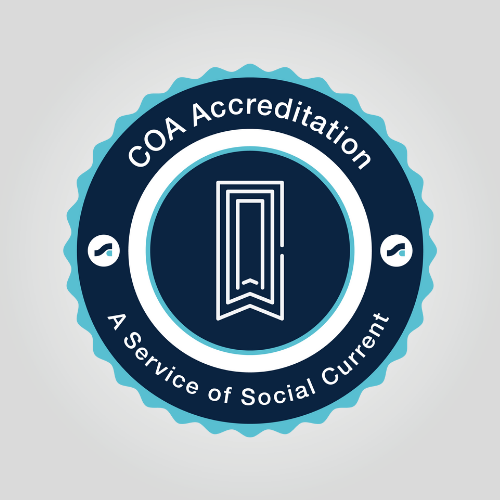Profiles in Accreditation: Presbyterian Home for Children
Welcome to the Council on Accreditation (COA) blog post series Profiles in Accreditation!
The organizations that COA accredits are diverse in both the communities they serve and their reasons for seeking accreditation (or reaccreditation). Profiles in Accreditation will explore the accreditation experience through the perspective of these organizations. Through them, we can discover the value of accreditation, best practices, lessons learned, and recommendations.
Organization profile
Name: Presbyterian Home for Children (PHFC)
Location: Talladega, Alabama; Hoover, Alabama
First accredited: July 2020
Snapshot: The Presbyterian Home for Children is a 152-year-old ministry of the Presbyterian Churches of Alabama which provides a faith-based safe haven for children, adolescents, young adults, and families through programs which nurture, educate, and equip individuals to become the fully functioning persons God created them to be.
Interview with Presbyterian Home for Children
For this Profiles in Accreditation post, we asked Doug Marshall, President and CEO of the Presbyterian Home for Children, to share his experience at an organization undergoing the COA accreditation process for the first time. Doug shared how he and his team navigated the workload in spite of a sudden upending of staff, and highlighted how accreditation has been a great source of validation for his agency.
COA: Why was seeking accreditation important for your organization?
DM: The Presbyterian Home for Children is a ministry to children, youth, adolescents, young adults, and families. Our faith-based non-profit is in its 152nd year of service. We have longed to obtain accreditation recognized at the national level that comprehensively represented the programs and services offered by our agency. We chose the Council on Accreditation (COA) because COA is one of the most highly respected national accrediting bodies.
In addition, COA is an approved accreditor for Qualified Residential Treatment Program (QRTP), relative to the Family First Prevention Services Act. As a faith-based agency with multiple service programs, we have an expressed need in our Moderate Residential Care Treatment Program to be a QRTP.
COA: What about COA made you decide to partner with us?
DM: As a long-standing member of the Alabama Association of Child Care Agencies (AACCA), our membership is filled with agencies who have obtained various accreditations. COA was specifically identified as the best national accrediting body for our agency’s needs. COA was the best fit for us due to our holistic programmatic structure and service type.
COA: What was your biggest worry coming into the accreditation process? How did that worry bear out?
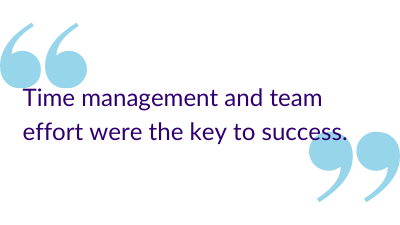
DM: We had been advised that accreditation by COA was extremely challenging and a tremendous amount of work. The greatest concern was balancing the workload of COA with the daily workload of program operations.
At times, the workload was arduous. It was quickly learned that one had to be disciplined and organized in order to meet proposed deadlines. Hence, time management and team effort were the key to success.
COA: What did your workplan and timeline for the Self Study and PQI process look like? How did it work out on a daily, weekly, and monthly basis?
DM: We had a hiccup at the start. In the first quarter of our work with COA, our Director of Resource Development and two additional members of our Leadership Team–one in Finance and one in HR/ Accreditation–made career changes and left their positions at PHFC. As a result, we requested and received an extension from COA. Thus although we started in October 2018 upon acceptance of our application, our Self-Study was delayed. Matters were further complicated by the fact that those positions had to be filled while all program management duties and the process to document achievement of work plan goals had to be maintained.
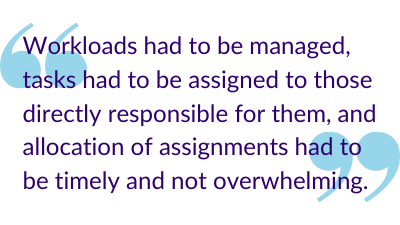
We established a PQI Committee that consisted of our Leadership Team. Throughout the process, the PQI Committee met on a bi-weekly basis to discuss assignments, progress, and concerns. As a result of the PQI Committee’s work, we were able to submit our Self-Study on July 31, 2020. The COA Lead and the Manager of Accreditation communicated frequently, and they diligently worked together to ensure that work assignments were completed in a timely manner to maintain motivation of the team members. It became apparent that some departments excelled in productivity, while others required more support from the COA Lead and the Manager of Accreditation. Workloads had to be managed, tasks had to be assigned to those directly responsible for them, and allocation of assignments had to be timely and not overwhelming.
COA: How did you engage and communicate with entire organization during the accreditation process?
DM: We managed engagement and communication through staff meetings, Leadership Team meetings, and PQI Committee meetings, as well as through email. That way, our team had important information in multiple formats.
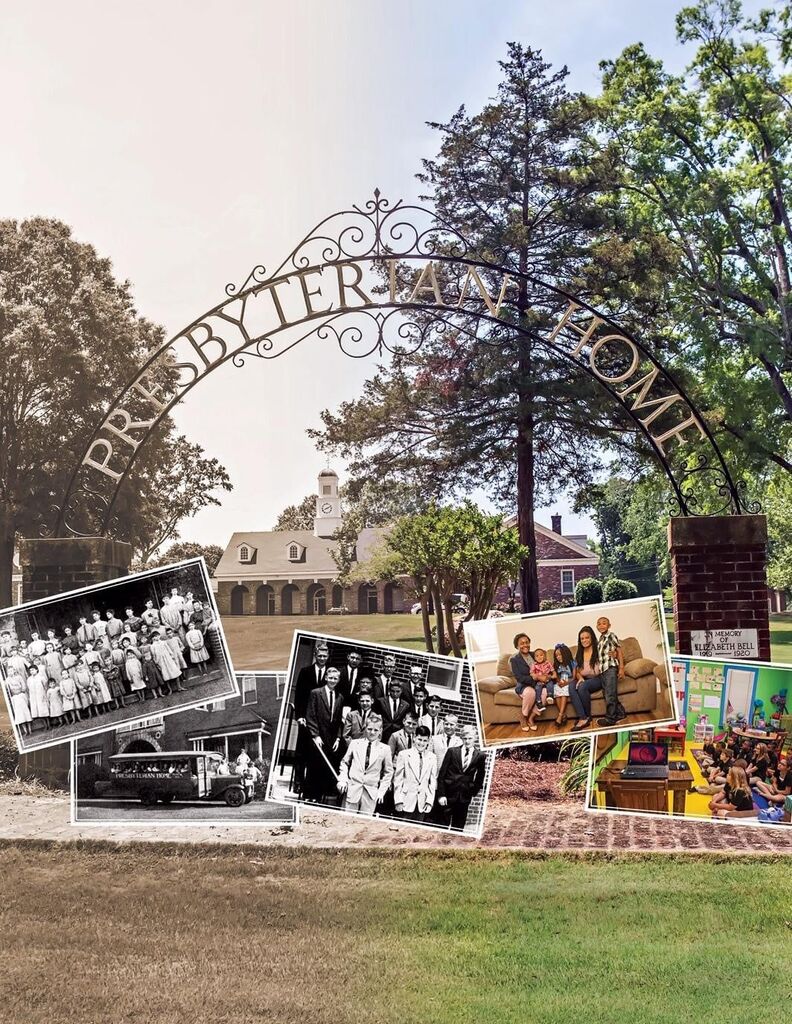
COA: What did you like most about the process? What did you find to be most helpful/beneficial to your organization?
DM: The end results! The most helpful benefits were:
- We have a method by which we can assess the quality of our programs,
- We have an annual report which demonstrates growth, strengths, and challenges, and
- Overall and most importantly, we have a process through which we can effect change.
COA: What was the biggest challenge?
DM: The biggest challenge was the unknown. This was a process that we desired but were fearful of at the same time, because we did not want to fail. Both our financial resources and our reputation was on the line, and we wanted to be good stewards of both.
COA: Were there any unexpected results after completing the Self-Study?
DM: There were not any unexpected results. We had strong processes in place–we just needed to document and demonstrate implementation of those processes, which took additional time.
COA: What do you see as the main benefit of COA accreditation?
DM: The main benefit is that COA validates our agency as a high-quality, non-profit faith-based organization at the national level.
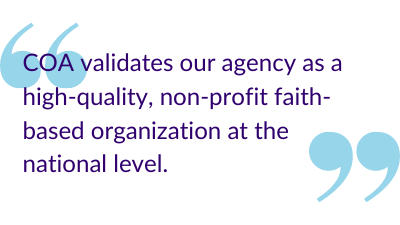
COA: How has COA (re)accreditation impacted operational success?
DM: Through our COA accreditation, we have a set of organized, cohesive standards for our faith-based non-profit ministry, which will guide our daily operations.
COA: What are the top three pieces of advice or tips that you would give to an organization considering or currently undertaking the accreditation process for the first time?
DM:
- Use the COA Tool Kit and DO ALL OF THE VIDEO TRAINING!!
- Stay organized and follow the timeline.
- Involve your entire organization in the accreditation process. Include your Board of Trustees, your staff members, clients/consumers, and your stakeholders. These are your team members who must buy in and take ownership of the entire accreditation process. It has to be a team effort.
COA: Are there any other learnings or insights that you’d like to share?
DM: Talk to your peer organizations who have completed the process. They have valuable wisdom and knowledge to help you along the way.
Thank you, Presbyterian Home for Children!
We would like to thank Doug for his illumination of the accreditation process through an organization impacted by the Family First Prevention Services Act, and acknowledge the entire Presbyterian Home for Children board and team for embracing accreditation and collectively contributing to the promotion of best practices. Thank you, all!
Do you have an accreditation story to tell? Click here to share it. You could be the next organization we feature!



